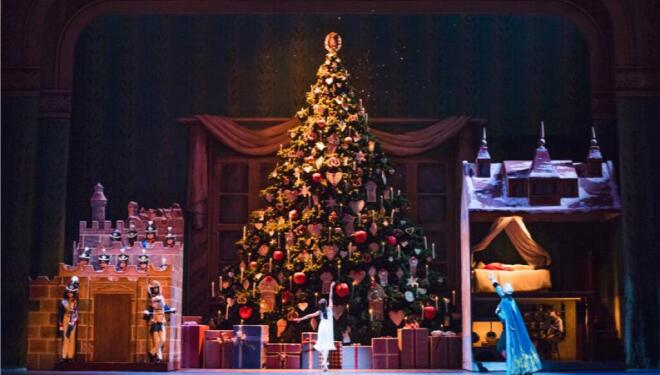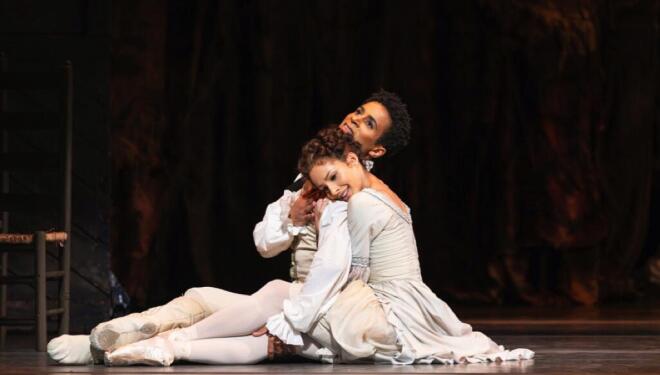
He can make bodies look very good indeed; perhaps none more so than the numerous clingy unitard-clad Royal Ballet dancers who populate The Dante Project, McGregor’s take on Dante Alighieri’s The Divine Comedy.
What he can’t do is make his choreography speak and tell a story, in this case that of Dante’s The Divine Comedy. Written in the 14th century, this is considered the greatest literary work in the Italian language, describing the poet’s journey through Hell, Purgatory and Paradise, guided first by the poet of Ancient Rome, Virgil, and then by the love of his life, Beatrice.
Each of the three realms makes up one Act. Inferno: Pilgrim, set in a dark, monochrome underworld of inverted mountain peaks, is by far the longest with sections for the sinners of all nine circles of hell; Purgatorio: Love, a lighter place of remembrance and ritual dominated by the image of a large living tree, is the most cohesive in terms of the execution of choreographic ideas.

William Bracewell in Wayne McGregor's The Dante Project © ROH 2023. Photo: Andrej Uspenski
Finally Paradiso: Poema Sacro, set high up in the stratosphere, has heavenly bodies swirling around in perpetual movement, culminating in a redemptive pas de deux for Dante and Beatrice.
In this, the ballet’s first revival since its 2021 premiere, Gary Avis returns as an august Virgil, with the role of The Poet danced by William Bracewell, and Fumi Kaneko as Beatrice.

William Bracewell and Fumi Kaneko in Wayne McGregor's The Dante Project © ROH 2023. Photo: Andrej Uspenski
In collaboration with a number of illustrious creatives – designs by Turner Prize nominee, Royal Academician Tacita Dean, lighting by Lucy Carter and Simon Bennison, dramaturgy by Uzma Hameed and a score by Thomas Adés – McGregor created what is primarily a visual spectacle, immensely enhanced by Adès’s superlative score: lush, varied, erudite and eloquent.
A prolific composer, Adès had never before created work specifically for ballet; but inspired by his love of Dante’s poem and previous musical treatments of it, namely by the Romantic composer Franz Liszt, he produced a score that is by turns energetic, lyrical, vaudevillian, ascetic and finally revelatory, and always engrossing. In this revival the Orchestra of the Royal Opera House is conducted with huge flair by Jonathan Lo.
McGregor’s choreography, its excesses tamed by his long association with the Royal Ballet, is mostly non-specific to its subject, though some sequences were beautifully brought to life by their interpreters, for example, Matthew Ball and Francesca Hayward as the adulterous couple of Paolo and Francesca, guilt-ridden yet still incapable of letting go; and a yearning, sinuous Calvin Richardson as Ulysses lost at sea.
William Bracewell, an immensely expressive dancer, spends most of Acts I and II watching from the sidelines; and his tremendously affecting partnership with Fumi Kaneko, herself another transporting dancer, is lost in two very short pas de deux in Acts II and III.
As a spectacle there is much to admire in The Dante Project; but nothing in it breaches the fourth wall to generate emotional involvement.
| What | Review: The Royal Ballet, The Dante Project 2023 |
| Where | Royal Opera House, Bow Street, Covent Garden, London, WC2E 9DD | MAP |
| Nearest tube | Covent Garden (underground) |
| When |
18 Nov 23 – 02 Dec 23, 19:30. Sat 18 Nov & 2 Dec 19:00. Mat Sat 2 Dec at 13:00. Dur.: 2 hours 45 mins inc two intervals |
| Price | £7-£130 |
| Website | Click here to book |



